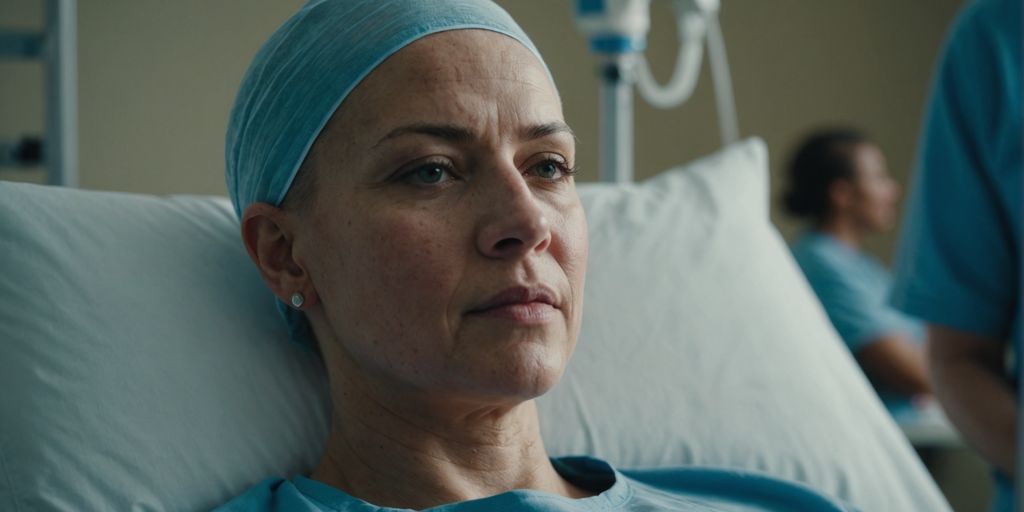Going through chemotherapy can be tough, but there are ways to make it a bit easier. Everyone reacts differently to the treatment, and the side effects can vary. Here are three simple tips to help you manage during this challenging time.
Key Takeaways
- Stay hydrated by drinking plenty of water, decaffeinated tea, juices, and milk to avoid dehydration.
- Eat whenever you feel like it to keep your strength up, even if food tastes different or you don’t feel hungry.
- Make sure to get enough rest to help your body recover from the fatigue caused by chemotherapy.
- Talk to your healthcare team about any difficulties you’re facing, whether it’s staying hydrated, eating, or managing other side effects.
- Remember that everyone’s experience with chemotherapy is unique, so find what works best for you and don’t hesitate to seek support.
1. Stay Hydrated
Chemotherapy can cause side effects like diarrhea and vomiting, which can lead to dehydration. Staying hydrated is crucial to maintain your energy levels and overall health during treatment. Make sure to drink plenty of water throughout the day.
Other beverages like decaffeinated tea, juices, and milk can also help keep you hydrated. If you find it difficult to consume enough liquids, consult your healthcare team for advice.
- Aim to drink at least 2 liters (about 8 cups) of fluids daily.
- Avoid alcohol and caffeine as they can contribute to dehydration.
- If you experience severe diarrhea, contact your healthcare provider immediately.
Keeping a water bottle with you at all times can serve as a helpful reminder to drink more fluids. Even small sips throughout the day can make a big difference.
2. Eat When You Can
Chemotherapy can make you feel nauseous and lose your appetite, so it’s crucial to eat whenever you feel up to it. Eating regularly helps prevent malnutrition. Keep in mind that food might taste different during treatment, sometimes even having a metallic flavor.
Here are some tips to help you eat better during chemotherapy:
- Small, Frequent Meals: Instead of three large meals, try eating smaller portions more often throughout the day.
- High-Calorie Foods: Opt for foods that are high in calories and nutrients, like nuts, cheese, and dried fruits.
- Meal Replacements: If you can’t eat solid food, consider high-calorie meal replacement drinks.
- Avoid Certain Foods: Stay away from mold-ripened or blue-veined cheeses, and raw meat, fish, and eggs to reduce the risk of infection.
It’s okay if you can’t eat much right after chemotherapy. Focus on eating well between treatments and consult your nurse or a dietitian for personalized advice.
3. Get Some Rest
Chemotherapy can make you feel extremely tired. Listen to your body and rest when you need to. Here are some tips to help you get the rest you need:
- Adjust your schedule: If possible, reduce your work hours or take breaks during the day.
- Ask for help: Let family and friends assist with chores and errands.
- Create a relaxing environment: Keep things around that bring you comfort, like a favorite blanket or a good book.
- Practice relaxation techniques: Try deep breathing, meditation, or gentle yoga.
It’s important to be patient with yourself. It might take time to regain your usual energy levels. Don’t hesitate to ask for help so you can focus on resting and recovering.
Remember, it’s okay to say no to activities that are too tiring. This is your time to focus on healing.
Conclusion
Chemotherapy is a tough journey, but with the right strategies, you can manage its side effects and maintain a good quality of life. Remember to stay hydrated, eat whenever you can, and get plenty of rest. Everyone’s experience with chemotherapy is unique, so it’s important to find what works best for you. Don’t hesitate to lean on your healthcare team for support and guidance. By taking these steps, you can make your chemotherapy experience a bit more manageable and focus on your path to recovery.
Frequently Asked Questions
How can I manage nausea during chemotherapy?
To help with nausea, you can try eating smaller meals more often, avoiding strong smells, and drinking ginger tea. Your doctor might also prescribe anti-nausea medication.
What should I drink to stay hydrated during chemotherapy?
Water is the best option, but you can also drink decaffeinated tea, juice, and milk. If you’re having trouble staying hydrated, talk to your healthcare team.
How much rest should I get during chemotherapy?
It’s important to listen to your body. Rest when you feel tired and don’t push yourself too hard. Aim for a good night’s sleep and take naps if needed.
What can I do if food tastes different during chemotherapy?
Try different foods to see what tastes good to you. Sometimes using plastic utensils can help with a metallic taste. Eating cold or room-temperature foods might also be easier.
Is it okay to exercise during chemotherapy?
Light exercise, like walking or gentle yoga, can be good for you. However, always check with your doctor before starting any new exercise routine.
Can I work during chemotherapy treatment?
Some people are able to work part-time or between treatments. It really depends on how you feel and the type of work you do. Talk to your employer about flexible options.
